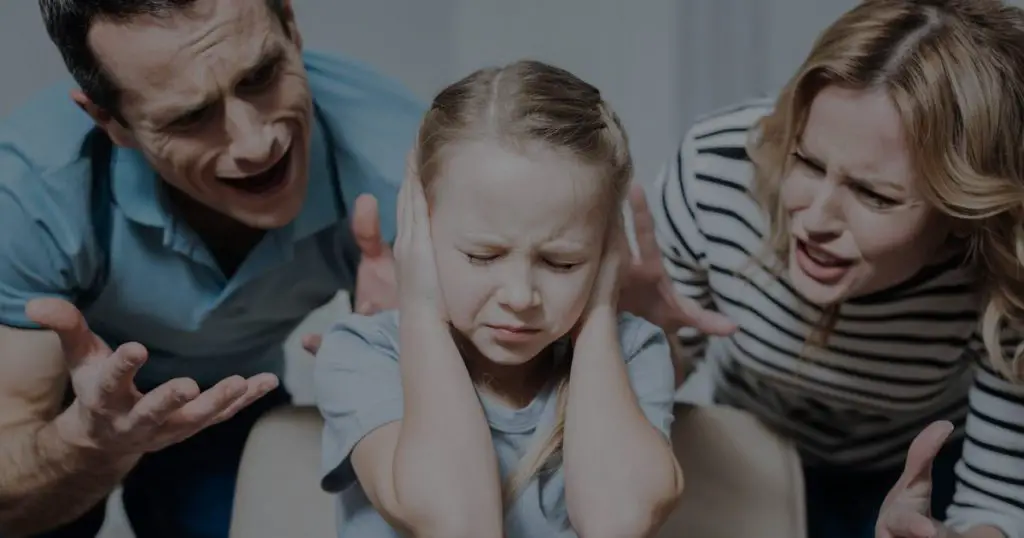
Greetings, dear parents, educators, mentors, and all the compassionate adults among us! Have you ever paused to reflect upon the profound influence your words wield over the young minds in your care?
A recent investigation published in the esteemed journal “Child Abuse & Neglect” posits that berating, demeaning, or verbally menacing children can exact a toll on their development akin to that of physical or even sexual maltreatment.
This comprehensive inquiry, orchestrated by erudite scholars hailing from Wingate University in North Carolina and University College London, undertook a meticulous review of a staggering 166 antecedent studies pertaining to child abuse.
The revelations therein are nothing short of revelatory: the realm of childhood verbal abuse, encompassing the realms of vociferous outbursts and acerbic verbal daggers, warrants its own distinct classification within the domain of maltreatment.
This acknowledgment carries weight, for the repercussions of verbal abuse can reverberate across a lifetime, cascading into a torrent of adverse consequences.
Diverging from other strains of emotional maltreatment, such as the icy mantle of the silent treatment or the harrowing specter of witnessing domestic turbulence, verbal abuse is conspicuous in its overt manifestation. This makes it more readily discernible, but it also underscores its exigency for redressal.
This seminal study was commissioned by “Words Matter,” a British philanthropic organization deeply committed to vanquishing the scourge of verbal abuse against the most vulnerable denizens of society – our children.
Professor Shanta Dube, the illustrious steward of this scholarly voyage, underscores the imperativeness of recognizing verbal abuse as a grave societal ill. The repercussions are far-reaching, extending into the terrain of psychological afflictions such as desolation and ire, and even manifesting as externalizing symptoms like involvement in illicit activities or substance misuse. Astonishingly, it can cast its ominous shadow upon physical well-being, elevating the specter of corporeal ailments, including obesity and sundry health maladies.
Jessica Bondy, the visionary founder of Words Matter, tenderly reminds us that the most well-intentioned adults may inadvertently find themselves ensnared in moments of verbal transgression. Yet, the collective endeavor lies in vigilance, in the endeavor to discern these lapses and, with unwavering determination, to dismantle the edifice of childhood verbal abuse, allowing our progeny to burgeon unfettered.
This study also offers a disquieting glimpse into shifting trends in the landscape of childhood abuse. As incidents of physical and sexual abuse recede, the ominous specter of emotional abuse, replete with verbal vitriol, appears to be surging in prominence. This underscores the imperative need for a consistent lexicon and efficacious interventions to combat this burgeoning menace.
So, what concrete actions can we undertake to sow the seeds of positive transformation? Words Matter extends a helping hand through a compendium of resources on their digital repository, a treasure trove designed to assist adults in eschewing the lamentable habits of shouting, demeaning, belittling, or name-calling when engaging in discourse with our young charges. Moreover, it underscores the profound importance of cogitating before uttering words and the significance of dedicating time to mend the rifts within relationships, should our words inadvertently wound.
In the realm of discipline and communication, let us bear in mind the cardinal rule: the first rule of raising one’s voice is to abstain from offering critique while doing so. We must also be cognizant of the child’s age and disposition, recognizing that each young soul responds to the cacophony of raised voices in a unique manner.
Let this study reverberate as a clarion call to action.
Our lexicon is the crucible in which a child’s destiny is forged, an instrument of profound influence. Let us, therefore, select our words with the precision of a master craftsman, weaving an environment wherein the blossoming of young minds finds no impediment.





